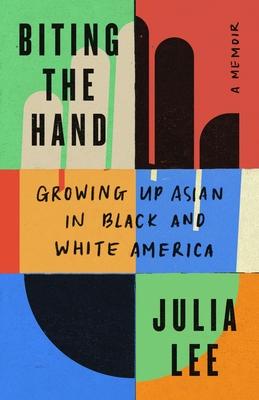In the vein of Eloquent Rage and Minor Feelings--a passionate, no-holds-barred memoir about the Asian American experience in a nation defined by racial stratification
When Julia Lee was fifteen, her hometown went up in smoke during the 1992 Los Angeles riots. The daughter of Korean immigrant store owners in a predominantly Black neighborhood, Julia was taught to be grateful for the privilege afforded to her. However, the acquittal of four white police officers in the beating of Rodney King, following the murder of Latasha Harlins by a Korean shopkeeper, forced Julia to question her racial identity and complicity. She was neither Black nor white. So who was she? This question would follow Julia for years to come, resurfacing as she traded in her tumultuous childhood for the white upper echelon of elite academia. It was only when she began a PhD in English that she found answers--not in the Bronts or Austen, as Julia had planned, but rather in the brilliant prose of writers like James Baldwin and Toni Morrison. Their works gave Julia the vocabulary and, more important, the permission to critically examine her own tortured position as an Asian American, setting off a powerful journey of racial reckoning, atonement, and self-discovery that has shaped her adult life. With prose by turns scathing and heart-wrenching, Julia Lee lays bare the complex disorientation and shame that stems from this country's imposed racial hierarchy to argue that Asian Americans must leverage their liminality for lasting social change alongside Black and brown communities.
In the vein of Eloquent Rage and Minor Feelings--a passionate, no-holds-barred memoir about the Asian American experience in a nation defined by racial stratification
When Julia Lee was fifteen, her hometown went up in smoke during the 1992 Los Angeles riots. The daughter of Korean immigrant store owners in a predominantly Black neighborhood, Julia was taught to be grateful for the privilege afforded to her. However, the acquittal of four white police officers in the beating of Rodney King, following the murder of Latasha Harlins by a Korean shopkeeper, forced Julia to question her racial identity and complicity. She was neither Black nor white. So who was she? This question would follow Julia for years to come, resurfacing as she traded in her tumultuous childhood for the white upper echelon of elite academia. It was only when she began a PhD in English that she found answers--not in the Bronts or Austen, as Julia had planned, but rather in the brilliant prose of writers like James Baldwin and Toni Morrison. Their works gave Julia the vocabulary and, more important, the permission to critically examine her own tortured position as an Asian American, setting off a powerful journey of racial reckoning, atonement, and self-discovery that has shaped her adult life. With prose by turns scathing and heart-wrenching, Julia Lee lays bare the complex disorientation and shame that stems from this country's imposed racial hierarchy to argue that Asian Americans must leverage their liminality for lasting social change alongside Black and brown communities.Hardcover
$26.99